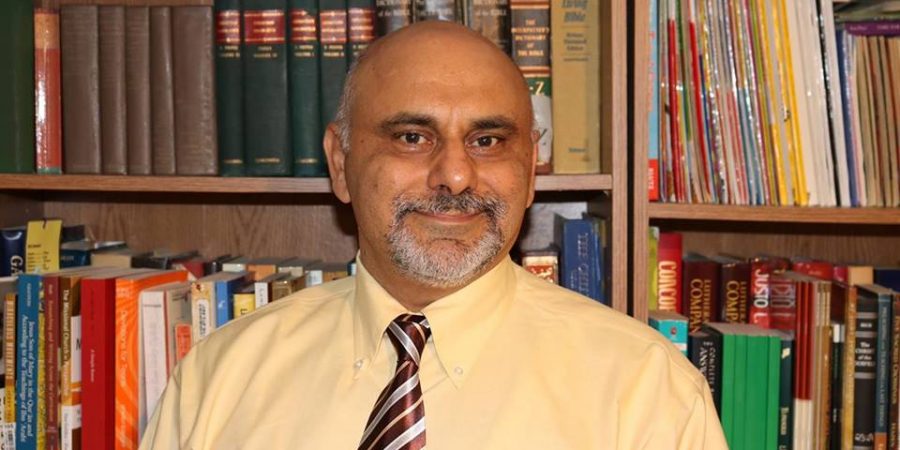While nobody wants to belittle the suffering that befell the innocent on both sides - Israelis and Arabs...
Opinion: The Church Should Not Take Sides in the Israeli-Arab Conflict

Last weekend, a large church in Chicago hosted an Arab-Israeli speaker who spoke on the topic of “Christ-centered reconciliation between Israelis and Palestinians.”
Dr. Salim Munayer, executive director and founder of Musalaha Ministry of Reconciliation, an organization which has worked “to bring Israelis and Palestinians together since 1990.”
According to the church’s website, Munayer is a former academic dean at Bethlehem Bible College, an adjunct professor at Fuller Theological Seminary, and has published several books on reconciliation, the Israeli-Palestinian conflict, and Christians in Israel.
Munayer began his message by stating that “Ashkenazi Jews had replaced Palestinians” in his native town Lod, Israel, in 1948, and that his family took refuge in a church for fear of being massacred during the Israeli – Arab war that year.
While nobody wants to belittle the suffering that befell the innocent on both sides – Israelis and Arabs – saying that European Jews “replaced Palestinians,” reveals that Munayer has bought into the Palestinian narrative that was formed years later. I am referring to the Arab initiative that calls for an Arab Palestine “from the river to the sea” which delegitimizes the State of Israel and calls for its destruction.
Under the British mandate for Palestine, both Arabs and Jews were considered Palestinian. In November 29, 1947, the United Nations General Assembly declared the partition of Palestine into “an Arab State and a Jewish State,” with Jerusalem as an international zone. The Arabs rejected the United Nations partition plan and intermittent hostilities broke out between the Arab and Jewish residents of British Mandatory Palestine over the next 7 months.
On May 14, 1948, Britain relinquished its Mandate over Palestine and removed its civil administration and armed forces. On the same day, the Jewish Agency proclaimed the establishment of the State of Israel on the territory allotted to it by the United Nations partition plan of 1947. The next day, May 15, 1948, the first Arab – Israeli war broke out; five Arab countries coming to the assistance of their Arab brethren now living in the newly established State of Israel. Many Arabs left their homes for safety in neighboring Arab counties – a process that already started the previous year after the United Nations Partition of British Mandatory Palestine – hoping that the Arab armies would “push the Jews into the [Mediterranean] sea.”
The Arabs of former British Mandatory Palestine, who remained after the declaration of the State of Israel, have been since that day called by all sides “1948 Arabs,” not Palestinians. That being the case, the historically accurate description is “Arab” not “Palestinian,” when referring to the Arabs of former British Mandatory Palestine. Munayer should say that in 1948 Ashkenazi Jews had replaced Arabs who fled for fear of their lives, not Palestinians.
Furthermore, Munayer, in one of his articles posted on the Christian website Come and See, accused his country, Israel, of Machiavellian politics and the marginalizing Arabs in order to justify violence against them. Munayer opines: “The instinctive reaction of the marginalized is to employ violence, which leads to chaos and social disruption. When violence is embraced as a form of resistance, the oppressed play into the hands of the powerful who are then able to justify their actions for the sake of ‘self-defense.’”
Unlike the American churches where Munayer often preaches on reconciliation, his compatriots describe him in different terms. According to an article in Israel Today, Munayer’s organization is described as “almost exclusively focused on bringing together Christian Arabs and Messianic Jews [not Israelis and Palestinians in the West Bank and the Gaza Strip]. As for the rest of Israeli Jewish society, Munayer has traditionally taken a more antagonistic approach, which speaks to what he expects of Messianic Jews interested in reconciliation.”
The News Agency added: “Of note, Munayer has boasted of family ties to George Habash, once described by Time Magazine as “Terrorism’s Christian Godfather” and a man responsible for the murder of many Israelis. More recently, Munayer was heard (listen at 43:13) suggesting that Hamas aren’t really terrorists and are just trying to make life better in the Gaza Strip.”
The position of some Israeli Arab citizens, like Munayer, is similar to that of many Lebanese Muslims who questioned the legitimacy of the Lebanese state before the devastating fifteen-year long Civil War that broke out in 1975. Many Lebanese Muslims accused their state of being predominately Maronite Christian and sided with Palestinian and Leftist militias, to the detriment of their own country.
According to Israel Today, Father Gabriel Naddaf, an Orthodox priest from Nazareth, Founder of the Christian Empowerment Council, called for an inquiry into the funding of Musalaha, and warned that under the veneer of reconciliation “lurks an anti-Israel and pro-terror agenda.”
American churches should avoid taking sides in the complicated Israeli – Arab conflict, and beware of political polarization under the guise of reconciliation and human rights.
Hesham Shehab
Counter Islamist Grid Chicago Associate
Read previous article from Hesham Shehab… https://xpian.news/2019/05/02/opinion-why-does-islamists-antisemitism-receive-a-pass/

Hesham Shehab
Adjunct Faculty at College of DuPage, Formerly Adjunct Faculty at American University of Beirut and Pastor at Peace Lutheran Church Lombard, IL Name pronounciation: HI-shahm SHI-hab Hebrews 12: 4 & Philippians 1: 29




Comments are Closed